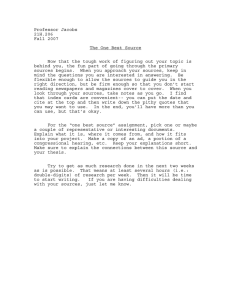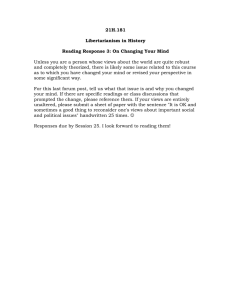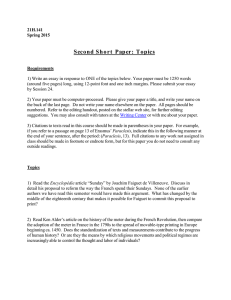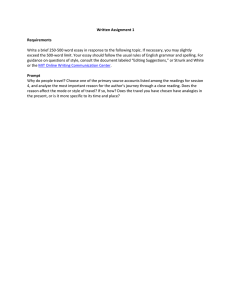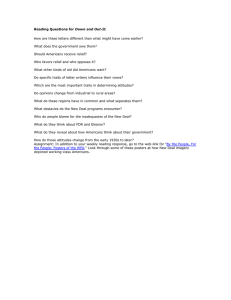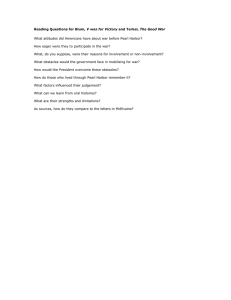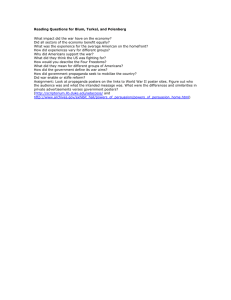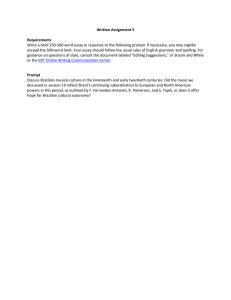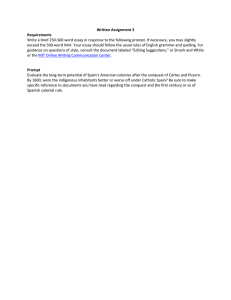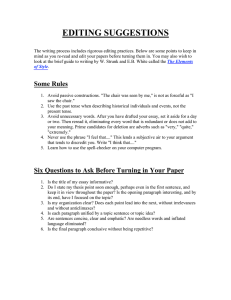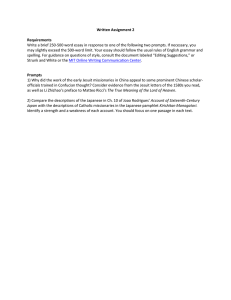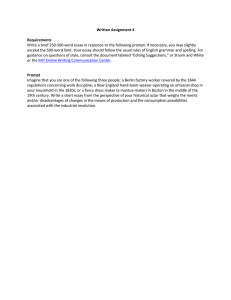21H.207 The Energy Crisis The One Best Source
advertisement
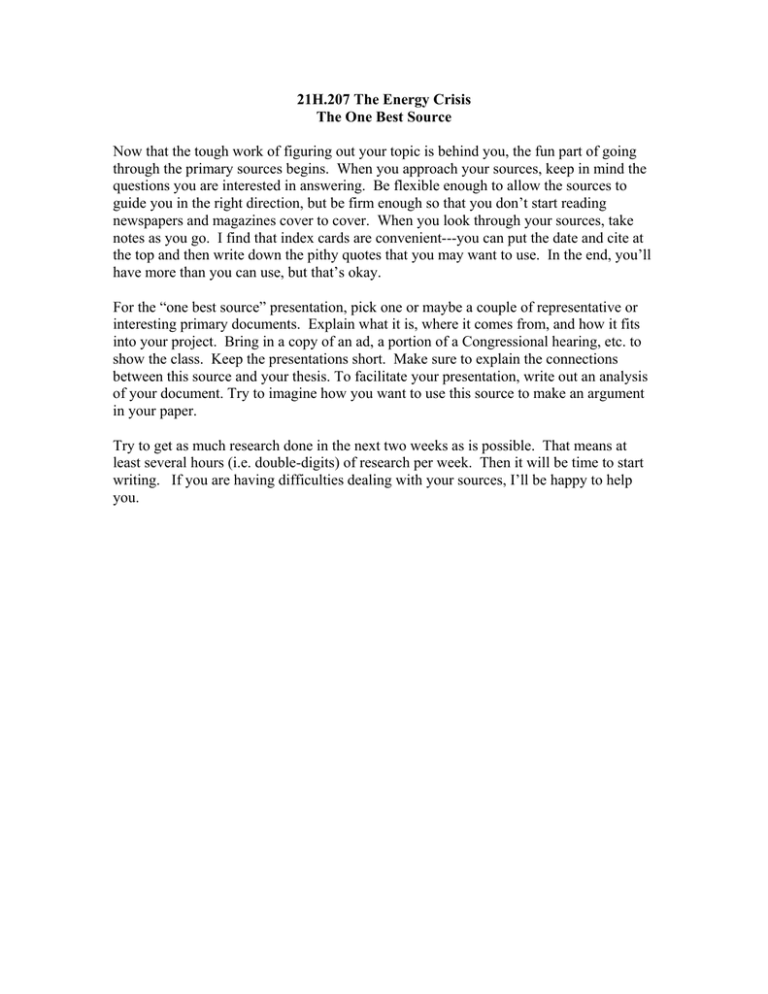
21H.207 The Energy Crisis The One Best Source Now that the tough work of figuring out your topic is behind you, the fun part of going through the primary sources begins. When you approach your sources, keep in mind the questions you are interested in answering. Be flexible enough to allow the sources to guide you in the right direction, but be firm enough so that you don’t start reading newspapers and magazines cover to cover. When you look through your sources, take notes as you go. I find that index cards are convenient---you can put the date and cite at the top and then write down the pithy quotes that you may want to use. In the end, you’ll have more than you can use, but that’s okay. For the “one best source” presentation, pick one or maybe a couple of representative or interesting primary documents. Explain what it is, where it comes from, and how it fits into your project. Bring in a copy of an ad, a portion of a Congressional hearing, etc. to show the class. Keep the presentations short. Make sure to explain the connections between this source and your thesis. To facilitate your presentation, write out an analysis of your document. Try to imagine how you want to use this source to make an argument in your paper. Try to get as much research done in the next two weeks as is possible. That means at least several hours (i.e. double-digits) of research per week. Then it will be time to start writing. If you are having difficulties dealing with your sources, I’ll be happy to help you. MIT OpenCourseWare http://ocw.mit.edu 21H.207 The Energy Crisis: Past and Present Fall 2010 For information about citing these materials or our Terms of Use, visit: http://ocw.mit.edu/terms.
